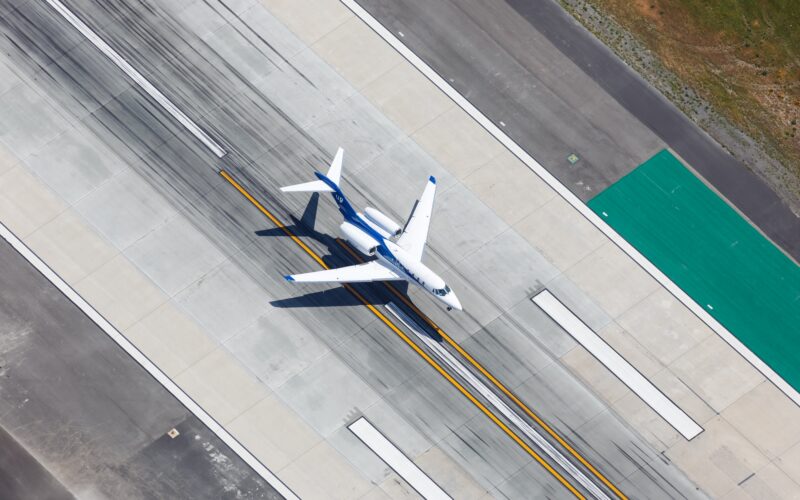The United States (US) President Joe Biden has set out his proposed ‘Budget for Fiscal Year 2025’ following his State of the Union speech last week.
Though many of the proposals are unlikely to pass through Congress, parts of the $7.3 trillion budget have caused concerns in the aviation sector, particularly those working within business aviation.
Among the plans announced on March 11, 2024, were funding requests to hire more air traffic controllers and a proposition to increase the costs private jet users pay.
Addressing the President’s aims for aviation the Department of Transportation (DOT) said that the sector has been “disproportionately funded by commercial air passengers”.
According to a statement by the DOT, “commercial passengers pay a 7.5% tax on the prices of their tickets plus a passenger facility charge up to $4.50” while “private jets users only pay fuel surcharge taxes — roughly $0.22 per gallon of jet fuel”.
“Private jets are 7% of flights handled by the FAA but contribute just 0.6% of the taxes that make up the Airport and Airway Trust Fund,” the DOT said.
Under President Biden’s plans there would be a phased-in fuel fee increase to $1.06 per gallon for private jets.
“This increase would phase in over five years, the first update in decades,” the DOT added.
In response to the announcement the National Business Aviation Association (NBAA), which represents private jet users and those working in the industry, said the proposals would “hurt business aviation”.
“The Biden administration’s sweeping plan would hurt business aviation and the jobs and communities that depend on it and make it harder for U.S. companies to compete in a global economy,” NBAA President and CEO Ed Bolen said. “Among the proposals that single out business aviation for onerous treatment is a five-fold fuel tax increase, even though current fuel taxes already cover the incremental cost imposed on the aviation system. We urge Congress to tell the president that his gambit won’t fly with the citizens, companies and communities that rely on business aviation.”
Bolen noted that “business aviation supports 1.2 million jobs and contributes $250 billion to GDP” and that despite perceptions most private jets are used by small and mid-sized companies.
The proposed budget also included $21.8 billion for the Federal Aviation Administration (FAA) to in part fund the continuing effort to recruit 2,000 air traffic controllers and increase training capacity.
“Our number one priority is safety. This budget will provide the FAA with the necessary resources to continue our essential safety work,” FAA Administrator Mike Whitaker said. “It supports our efforts to increase air traffic controller hiring, modernize aging air traffic facilities, and enhance our safety oversight.”
The budget also included an $8 billion commitment over five years to invest in aviation safety, efficiency, and facilities, including facility replacement and radar modernization, plus $1.8 billion for the Office of Aviation Safety to support production oversight and continued operational safety.
“The FAA took decisive actions after the January 5 Boeing 737-9 incident to bolster its oversight activities and the proposed FY25 budget boosts the FAA’s resources for continuous safety improvement,” the agency said.

